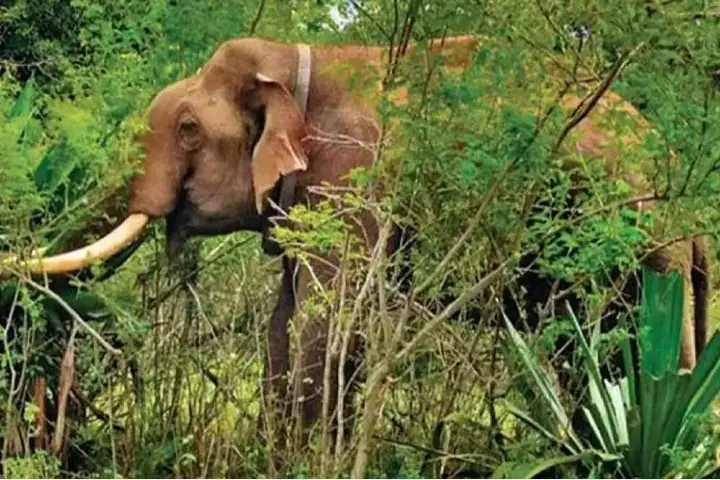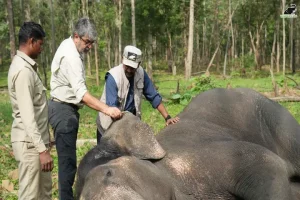The country’s Forest Department officials are trying varied methods to check human-animal conflict with a view to conserve the flora and fauna of a region. A case in point is Karnataka forest department officials in MM Hills Wildlife Sanctuary fitting radio collars around two elephants to avoid confrontation of these mammals with villagers.
Equipped with a GPS the radio collar is a thin belt which conveys information about the animal to a computer or an app in a mobile. This ensures real-time monitoring of these animals thus making available early warning to forest officials and staff if the elephants stray close to human habitats.
Talking to indianexpress.com, V. Yedukondalu, Deputy Conservator of Forest, said: “We started this on July 17. Radio collars will prevent human-animal conflict in the village areas. We have received complaints that two tuskers often enter the village areas and agricultural land. Emission of radio signals from the radio collars will warn us so that we can take measures accordingly.”
The officials will keenly observe how effective these collars are and if need be, more elephants will be fitted with it. “We are watching the effectiveness of the collars. If in future the situation demands more elephants to be radio collared, we will go ahead. The Wildlife Institute of India’s help has been solicited in this initiative,” observed Yedukondalu.
The process of collaring involves identifying the creature, sedating it with a dart and then putting the radio collar around its neck.
Apart from Karnataka, other States that have adopted radio collaring includes Tamil Nadu, Odisha, Uttarakhand, West Bengal, Assam and Chhattisgarh among others.
Radio collaring of elephants commenced in Karnataka in 2019.




















